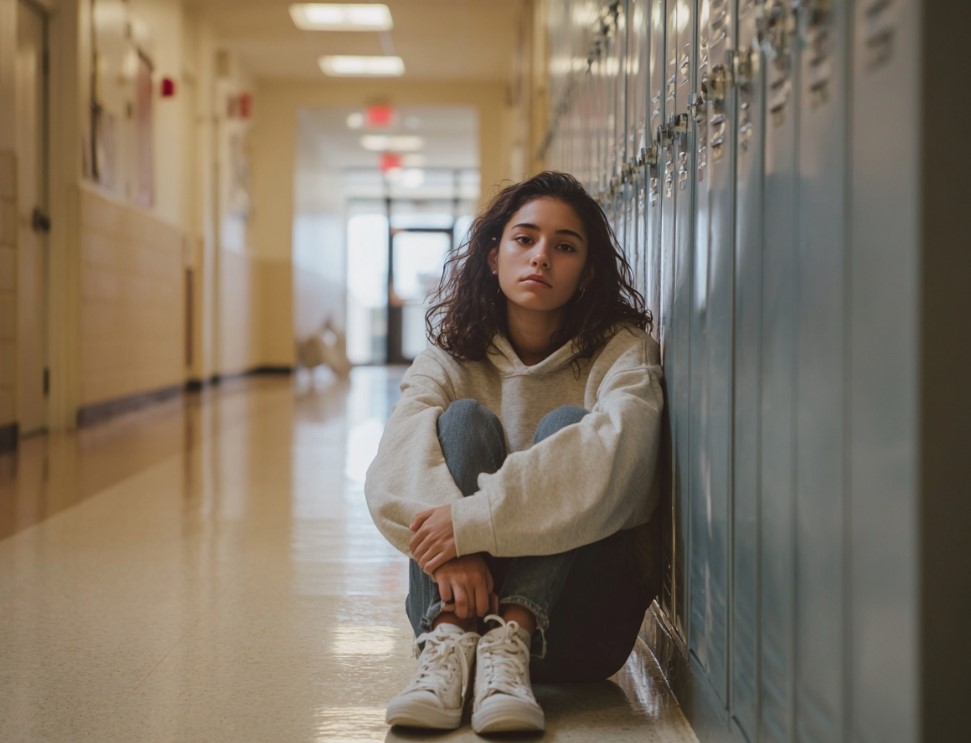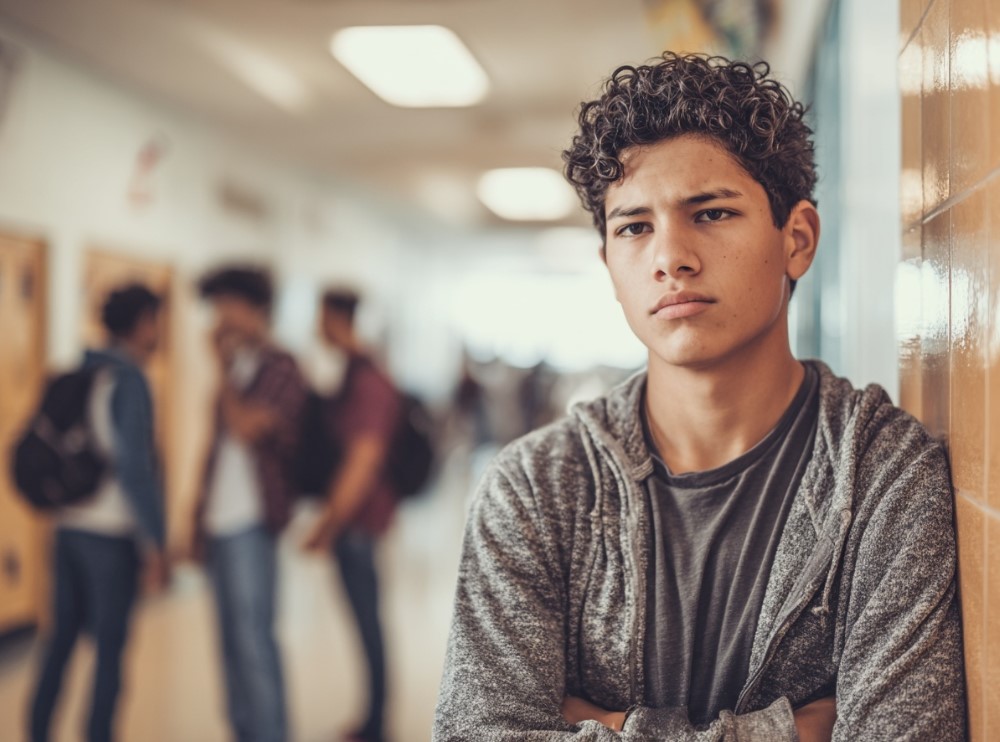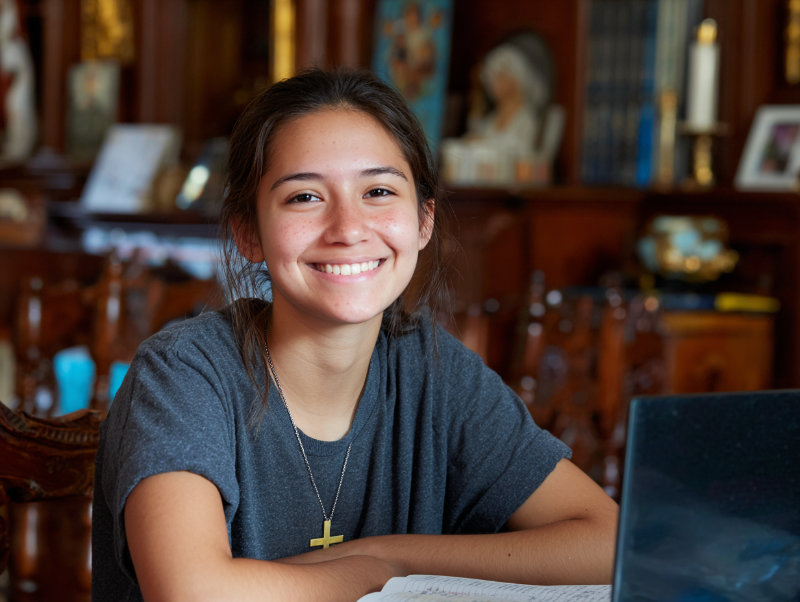
If you’re a high school student—or a parent watching one—you’ve probably sensed it: school isn’t just about classes and homework anymore. It’s often wrapped in deadlines, high-stakes testing, rigid schedules, social pressures, and a sense that if you’re not “on” all the time, you’ll fall behind. That environment can be especially hard when mental health is involved. At Resolute Academy, we believe learning should empower, not stress you. And the current reality makes that belief urgent.
The state of teen mental health: the numbers are alarming
Recent data reveal that young people are facing a mental-health crisis—and schools are often part of the stress loop, not always the solution.
The Centers for Disease Control and Prevention (CDC) found that in 2023, about 40% of U.S. high-school students reported persistent feelings of sadness or hopelessness. (CDC)
That same study found 20.4% had seriously considered attempting suicide, and 9.5% had attempted it at least once within the year. (CDC)
More broadly, an estimated 49.5% of adolescents (ages 13-18) have experienced some mental health disorder in their lifetimes. (National Institute of Mental Health)
And according to the National Alliance on Mental Illness (NAMI), 1 in 6 youth have a condition like anxiety or depression—but only roughly half receive any mental health services. (NAMI)
On the school support side: in 2021-22, only 49% of U.S. public schools offered diagnostic mental health assessments and just 38% offered treatment services. (National Center for Education Statistics)
These aren’t just statistics. They reflect teens who feel under-supported, overwhelmed, and anxious—or worse—in school settings that weren’t built with mental well-being in mind.

Why traditional school environments often amplify anxiety
Let’s face it: school can be stressful. Between early morning alarms, packed schedules, social dynamics, rigid test-prep, and a “one-size-fits-all” pace, it’s no wonder students feel pressured. Some specific factors:
Fixed schedules & early start times: When your brain isn’t fully awake, your stress hormones are already elevated.
High-stakes testing: The emphasis on big exams can make school feel like performance theatre instead of learning.
Crowded classrooms: Fewer opportunities for personalized support; many students suffer quietly.
Limited flexibility: If you’re managing anxiety, depression, health problems, or family responsibilities, a rigid setting can feel impossible to navigate.
Under-resourced mental health support: As shown above, many schools lack the resources to properly support students in distress.
For students dealing with anxiety, depression, OCD, or simply high stress, these factors don’t just make school harder—they can make it harmful.
How Resolute Academy’s online private-school model supports mental health
At Resolute Academy, we’re committed to creating a learning environment where mental wellness is built in, not tacked on. Here’s how we support students who need a calmer, more flexible path:
1. Flexible pacing and schedule
We know that mental health isn’t fixed. Some days are better than others. Our online format allows students to engage when they’re able—without being penalized for how their health is fluctuating. If you’re having a tough week, you can shift your schedule, work asynchronously, and get back on track in a way that honors your well-being.
2. Multiple ways to learn and demonstrate growth
We move away from rigid testing as the only measure. Projects, portfolios, oral presentations, reflective journals—these allow students to show what they know in ways that align with how they feel and learn. That approach reduces the “freeze under pressure” effect many anxious students experience.
3. Built-in wellness and mental-health awareness
Because we’re a smaller, online community, we can pay closer attention to signs of distress (changes in participation, withdrawn behavior, declining performance). We integrate wellness check-ins, workshops on stress-management, and guidance on healthy habits (sleep, movement, screen-time, etc.). Given the link between sleep, screen-time, and anxiety, this matters.
4. Safe, inclusive environment
Students who face bullying, social anxiety, or identity-based stress often find online settings less triggering. When attendance means engaging from a comfortable space, it can lower social-stress barriers and encourage participation.

Real-life example: thriving instead of surviving
Meet Zoe (name changed). In a traditional high school, Zoe felt constantly on edge—worrying about seating, lunchroom noise, abrupt transitions, and unannounced quizzes. She began missing days, worried she’d “just sleep through” a pop quiz. After transferring to Resolute Academy, Zoe found she could log into class after calming her morning routine.
She crafted a plan: live seminar at 10 a.m., independent work later in the day, regular check-ins, and built-in breathing breaks. Her grades stabilized, but more importantly, her anxiety levels dropped. She began actually enjoying learning again.
To students and parents: what you can do now
If your student reports persistent sadness, hopelessness, or anxiety around school, don’t shrug it off as “normal teen stuff”—the data show that the prevalence is high and the outcomes serious.
Ask questions: Is the school providing flexible pacing? Are there mental-health check-ins? Can the student demonstrate learning in non-traditional ways?
Consider alternatives: An online private school like Resolute Academy isn’t “easier” or less rigorous—it’s more adaptable to the real life of a teen whose mental health deserves space and support.
Remember: Learning should build resilience, curiosity, and confidence—not fear, avoidance, or burnout.
At Resolute Academy, school isn’t supposed to be a source of anxiety—it’s supposed to be a springboard for thriving. When mental health is anchored into how you learn, when mentoring works with you, when the schedule flexes for you, that’s when education becomes sustainable and empowering.
If you’re ready for a school where your wellness matters as much as your grades, we’re here.
